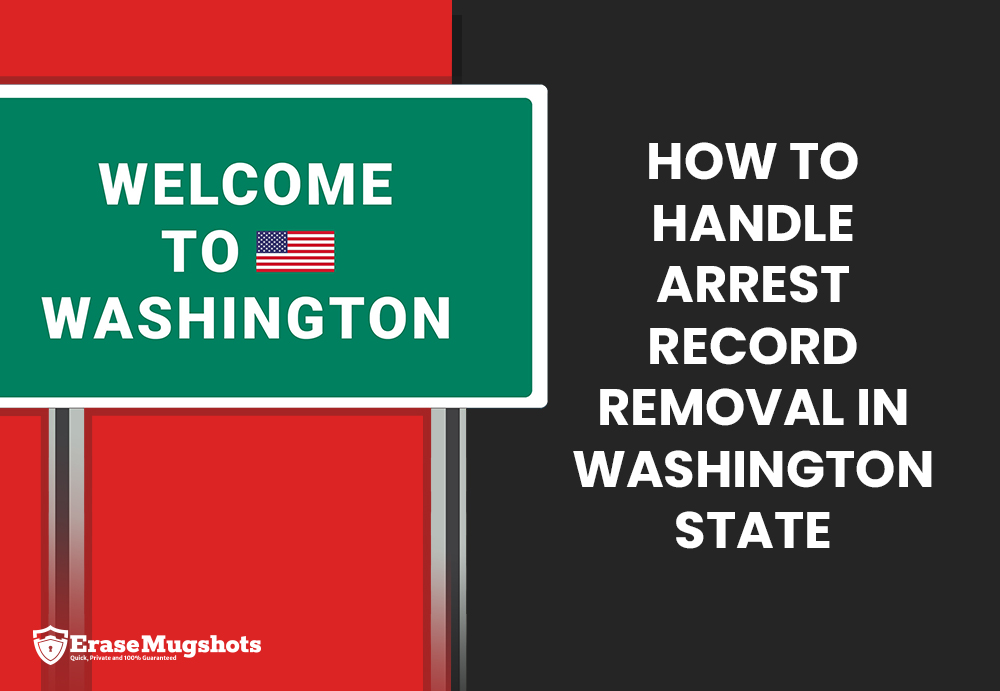How to Handle Arrest Record Removal in Washington State

Table of Contents
Navigating the process of removing arrest records in Washington can be daunting, but it’s a crucial step toward improving your future opportunities. Whether dealing with non-conviction records or seeking to vacate criminal convictions, understanding the laws, eligibility, and procedures in Washington State is key to success.
What is an Arrest Record?
An arrest record documents an individual’s detainment by a law enforcement agency, detailing information such as:
- Personal details
- Criminal charges filed
- Agency responsible for the arrest
- Location and time of the incident
In Washington State, these records can include non-conviction data, domestic violence charges, and gross misdemeanors. Court records linked to these arrests are accessible through background checks, which can significantly impact employment, housing, and personal opportunities.
Laws Governing Arrest Record Removal in Washington
Under Washington law, individuals have the right to address criminal history through processes like expungement, sealing, and vacating convictions. The Judicial Information System plays a critical role in maintaining and accessing these records.
- Non-conviction data: If charges were ultimately dismissed, individuals may request the removal of these records.
- Criminal convictions: Certain offenses, such as sexual exploitation or violent crimes, are not eligible for expungement.
- Juvenile records: These often follow different rules and may be handled through juvenile court procedures.
Key Factors in Washington’s Record Removal Laws
- Eligibility Criteria
To remove a record, individuals must meet specific requirements:
- Completion of all sentences, including deferred sentences and legal financial obligations.
- No new crimes were committed within a set timeframe.
- Certain offenses, like felony offenses, may require a longer waiting period or be ineligible for removal.
- Vacated Convictions
A vacate order effectively clears a conviction, allowing the individual to legally state they were not convicted of the crime. This option is available for some gross misdemeanors and non-violent felonies.
- Civil Restraining Orders and No-Contact Orders
Any active no-contact order or civil restraining order must be resolved before proceeding with record removal.
Steps to Remove Arrest Records in Washington
1. Determine Eligibility
Eligibility depends on:
- The type of offense (misdemeanor vs. felony)
- Whether the charges resulted in a conviction or were ultimately dismissed
- The time elapsed since sentencing or dismissal
For example:
- Non-conviction records may be eligible for removal after two years.
- Convictions may require up to 10 years of compliance with legal financial obligations.
2. Obtain Necessary Documents
Gather all required documents, including:
- Washington State Patrol criminal history records
- Copies of court records
- Proof of completed sentencing and financial obligations
3. File a Petition for Expungement
Submit a formal request to the appropriate court where the case was handled. Include:
- Details of the criminal charges
- Evidence of rehabilitation
- Any supporting documentation, such as employment or community service records
4. Attend the Court Hearing
A judge will review your petition and consider factors such as:
- The nature of the crime
- Compliance with sentencing
- Contributions to the community
Proper preparation, including the guidance of an experienced attorney, is crucial for success.
Exceptions to Record Removal
Not all records are eligible for removal under Washington State laws. Exceptions often include:
- Violent crimes, such as homicide
- Sexual exploitation and other sex offenses
- Repeat offenders with multiple convictions
These cases may require alternative approaches, such as pardons or sentence modifications.
Benefits of Removing Arrest Records
Successfully removing an arrest record offers numerous advantages:
- Employment: Employers often conduct background checks, and a clean criminal history enhances job prospects.
- Housing: Landlords frequently review criminal history records, and expungement improves access to better housing options.
- Rights restoration: Individuals may regain rights such as voting or obtaining a Concealed Pistol License.
Alternatives to Record Removal
For those who do not qualify for traditional expungement, alternative options include:
- Seeking a pardon from the governor
- Pursuing administrative remedies under the New Hope Act
- Applying for reduced sentences or sentence modifications
Conclusion
Removing arrest records in Washington is a valuable step toward reclaiming opportunities and rebuilding your life. Whether addressing non-conviction data, expunging felony offenses, or vacating convictions, understanding the legal process and requirements is essential.
With proper preparation and guidance from an experienced attorney, you can navigate the complexities of Washington law, comply with the Washington State Patrol and court records systems, and achieve a fresh start.
Free Mugshot Removal Analysis
